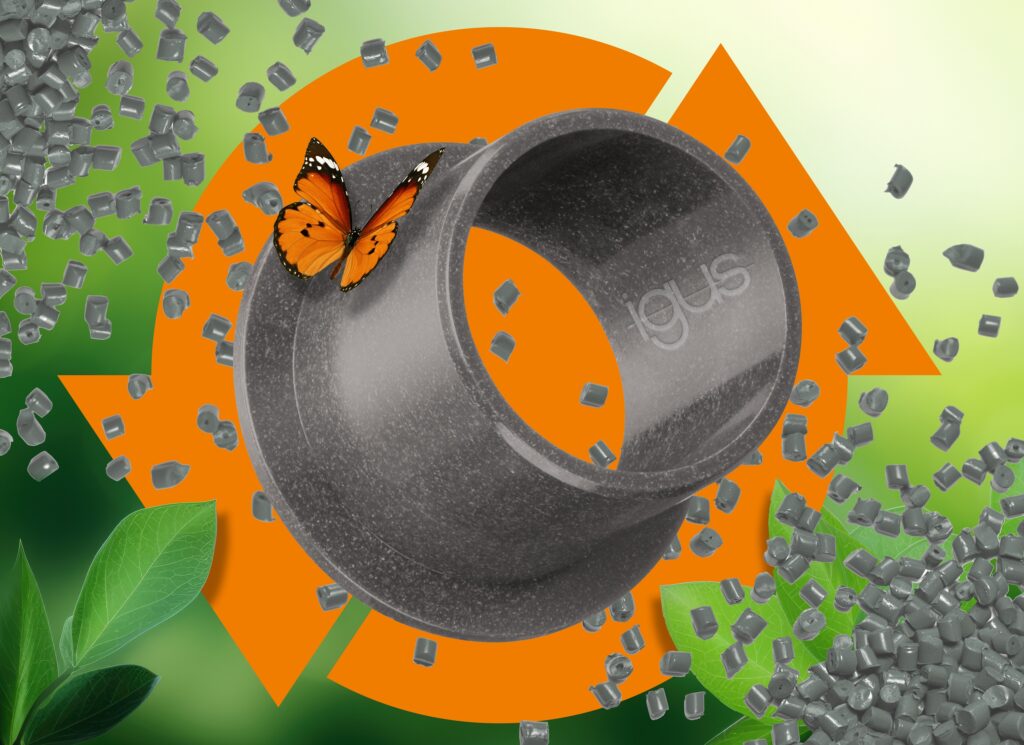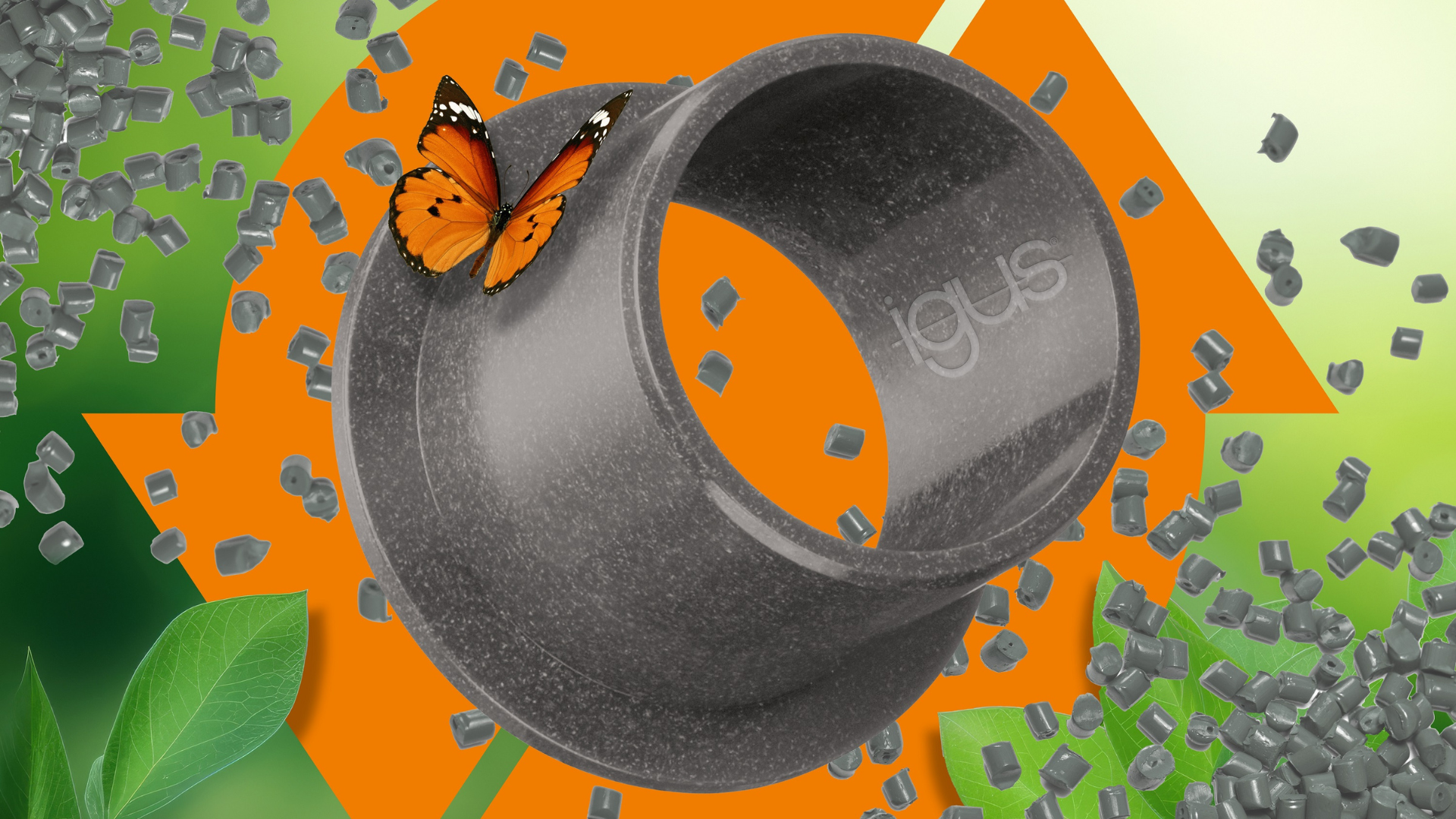Motion plastics specialist igus has introduced a new plain bearing made from recycled plastic. The bearing, iglide ECO P210, is a chemical-resistant variant that has been added to the company’s iglide ECO series.
The iglide ECO series is manufactured using regranulate made from the sprue and defective injection-moulded parts produced by igus. This allows the company to recycle plastic waste and reduce the amount of virgin plastic used in production.
The new iglide ECO P210 plain bearing has been designed for use in machines that regularly come into contact with chemicals. Potential applications include agitators, laboratory mills, filtration devices, and car washes. The bearing has a maximum recommended surface pressure of 50MPa at room temperature and can operate between -40°C (-40°F) and 100°C (212°F). Like all igus plain bearing materials, it does not require external lubrication with oil or grease.
Commenting on the development, South Africa’s product manager responsible for bearings, Juan-Eric Davidtz adds, “Our in-house laboratory tests show that plain bearings made of regranulate provide almost the same performance as the conventional iglidur P210 series. They are similarly resistant to edge pressure, shocks and impacts with only slight concessions.”
The ECO P210 is the fifth product in the iglide ECO family. Other materials available include ECO H, ECO P, ECO G, and ECO A180. According to igus, all ECO materials consist of at least 97 percent recycled plastic.
The ECO series development is part of the igus sustainability strategy. Among other things, igus shows the CO₂ footprint of best-selling iglide materials. This enables customers to compare and select the bearing with the lowest CO₂ footprint.
igus is striving to transform the classic linear plastics economy into a sustainable circular economy. To this end, it not only recycles but also invests in innovative technologies, such as those from Mura Technology, a British company developing a process to turn plastic back into crude oil using only water, high temperatures, and pressure.



